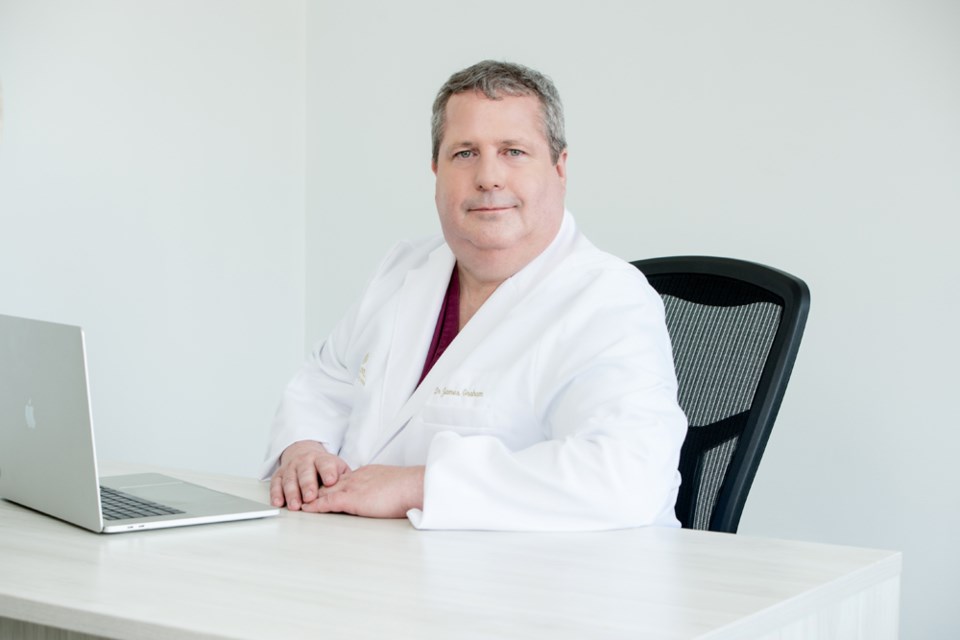It seems like conceiving a baby should be the easiest thing in the world, but studies show that infertility rates are on the rise in Canada. Currently, 15% of couples will not conceive in a year of trying and that number increases to more than 50% if the woman is over the age of 39.
“The good news is that recent advances in fertility treatment and prenatal testing have significantly improved the chances of conceiving and having a healthy baby, even for women who are over 40 and/or had multiple miscarriages,” says Dr. James Graham, fertility specialist and clinical director at Olive Fertility Centre Victoria.
Just knowing these five fertility facts could increase your odds of getting pregnant:
1. 40 is not the new 30 when it comes to your eggs
Despite the number of celebrities that seem to conceive with ease in their 40s, like Hilary Swank who is pregnant with twins at 48, your chances of getting pregnant over 42 with your own eggs are very slim. Most 40+ celebrities touting baby bumps have used donor eggs (eggs from a younger woman) or their own eggs which they froze at a younger age in order to get pregnant with IVF.
2. Don’t wait to freeze your eggs
Many women who are feeling their biological clock ticking, but are not yet ready to have a baby, are thinking of freezing their eggs with a new technology called vitrification. This is a flash-freezing process that allows women to preserve their eggs for future use. Doctors recommend women freeze their eggs before age 38, with optimal years between 32 and 36.
3. Are you missing your fertile window?
If you rely on taking your basal body temperature (BBT) to determine the best time to have intercourse, you may be too late. The rise in your BBT occurs after you have ovulated. The sperm will live in the body for approximately 3 days but the egg only lives for 24-48 hours, so it is important to have intercourse before you ovulate rather than after.
“The easiest way to find out if you are ovulating is to use an Ovulation Predictor Kit (OPK). The 12 to 36 hours from the time you test positive for ovulation carries the highest likelihood of becoming pregnant,” says Graham.
4. Are you a fertile weight?
A healthy BMI (Body Mass Index) is 18.5 - 24.9. Just losing 5 to 10 pounds if you are overweight (or gaining a few pounds if you are underweight) can significantly increase your chances of getting pregnant.
BMI is just as important for men. A BMI over 25 can affect fertility hormones and can lead to reduced sperm movement and increased sperm DNA fragmentation.
5. Be proactive. Ask for a referral to a fertility specialist if:
- You are under the age of 35 and have been trying to get pregnant for 12 months or more.
- You are over 35 and have been trying to conceive for 6 months or more. The chances of fertility treatment being successful become progressively less with advancing age.
- You have irregular menstrual cycles. A menstrual cycle is counted from the first day of one period to the first day of the next and normally occurs every 21 and 35 days.
- You have Poly Cystic Ovarian Syndrome (PCOS).
- You have been diagnosed with endometriosis or have had a previous pelvic infection or sexually transmitted infection.
- Your partner has a history of infection (e.g., mumps), injury or surgery on his testicles, or difficulty with erection or ejaculation, or he has been diagnosed with a sperm problem.
- You or your partner has a health problem such as diabetes or high blood pressure, or a history of cancer treated with radiation or chemotherapy.

“Remember, most couples who have difficulty conceiving will go on to have a baby,” says Graham, adding “in B.C., your consultations with a fertility specialist as well as the initial investigations for infertility and some surgical treatments are covered by MSP.”
For more information on fertility treatments, visit www.olivefertility.com.



